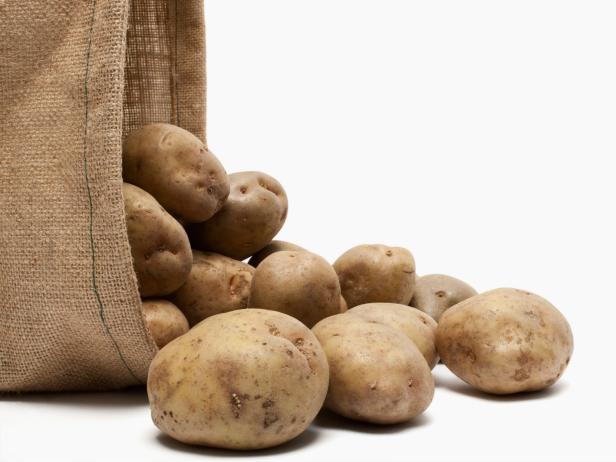Hot Potato? A New Genetically Engineered Spud May Be Headed Your Way


Fuse
A genetically engineered potato may be on its way to your dinner plate, not to mention your chip bag and french fry packet.
On Friday, the Department of Agriculture approved the commercial planting of a new variety of spud specially modified to resist bruising and contain less of a possibly cancer-causing chemical, acrylamide, that is produced when a potato is fried. Whether that’s a good or bad thing depends on whom you ask.
Doug Gurian-Sherman, a senior scientist at the advocacy group the Center for Food Safety, has expressed concern about the genetically engineered (GE) potato and the technique used to produce it, RNA interference, calling USDA approval hasty, “riddled with holes” and “extremely worrisome.”
“We simply don’t know enough about RNA interference technology to determine whether GE crops developed with it are safe for people and the environment,” Gurian-Sherman said in a statement. “If this is an attempt to give crop biotechnology a more benign face, all it has really done is expose the inadequacies of the U.S. regulation of GE crops.”
Gregory Jaffe, biotechnology project director at the consumer group Center for Science in the Public Interest, was more optimistic. “We support clearly trying to reduce consumers’ exposure to acrylamide and if this product helps do that, I think it’s a benefit,” he told The New York Times.
Clearly, a bruise-resistant potato appeals to companies as a potential bottom-line booster. But because of its purported potential health benefits, this tuber, developed by food and agribusiness giant J.R. Simplot Company, McDonald’s original french fry supplier, could appeal to consumers as well as one of a new crop of genetically modified foods to take this tack, in what may be a canny attempt to sidestep concerns about GMO foods.
It’s still unclear whether large restaurant chains and food companies will embrace these new GE potatoes, especially because it would take some time before supplies could meet such large-scale demand. Some GMO food opponents are already asking McDonald’s not to use them. Instead, grocery store and food-service sales, as well as potato-chip makers, may be the first step, the Times reports.
But the Center for Food Safety notes in a release that because labeling of GE foods is currently — in most cases — not required by law, consumers may soon find themselves buying the new GE potatoes without even being aware of it.































































